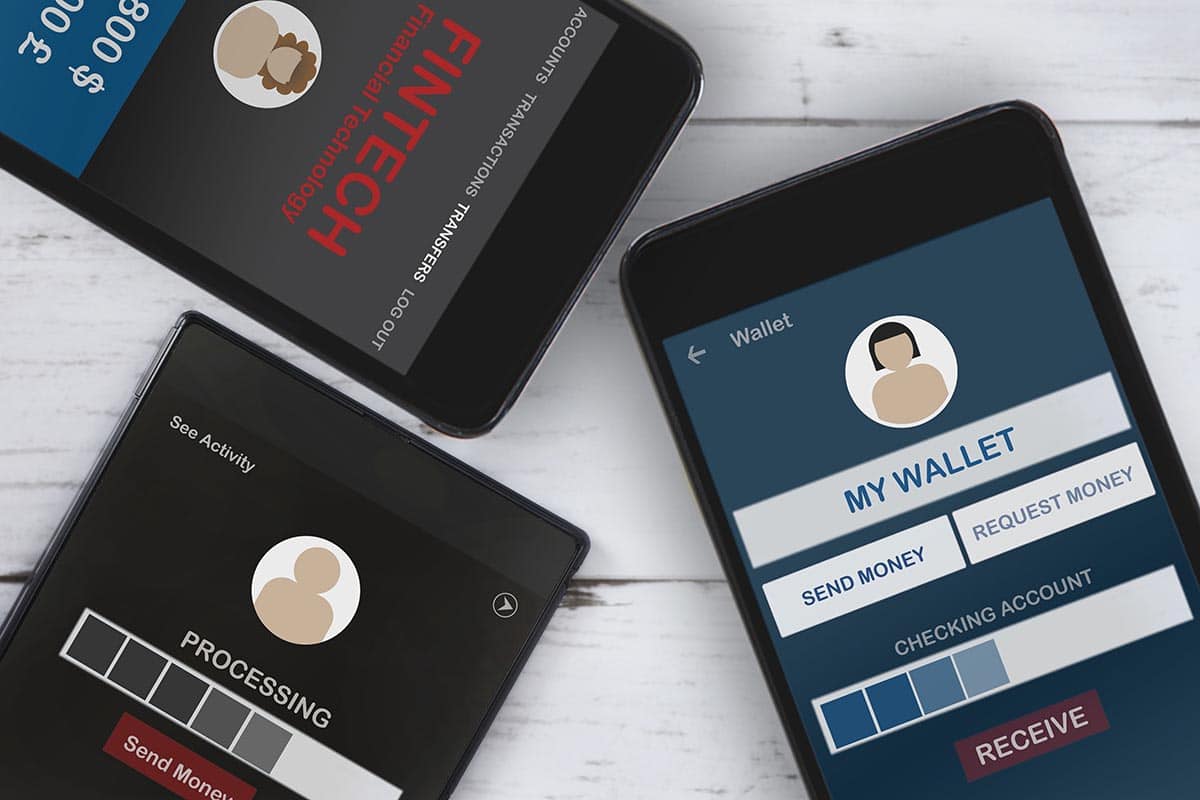Transferring money from one bank account to another is necessary for the modern age. An individual cannot do it with only one account. Instead, you need multiple accounts in different banks & a proper tool to ease up money flow from one place to another. The Banking authorities know this, and hence almost every bank provides the facility to transfer money from one bank account to another via an online banking system.

If you have your funds extent to different accounts, you can transfer between them electronically. Online banking has made it easier and instant. Its accessibility depends on the banks. Before the transaction, you’ll need to establish a link between those accounts you have at different banks – the sender and the receiver.
How To Transfer Money From One Bank To Another
When we talk about how to transfer money from one bank to another, there are many different ways to do it online. If you have transferred money to an account, a bank transfer is an intelligent way to do it, but how you send the money depends on how quickly it will go. You must write a cheque to the bank from which you are moving money and transfer it to one of the banks that apply this approach.
And to do that, you need to follow these simple steps:
- Interconnect the two accounts: login to the First Bank’s website or mobile app and choose the option for money or funds transfer. There might be another option for internal transfer (to transfer from one account to another within the same bank) and external transfer (to transfer from one bank’s account to another bank’s account). Exert the ‘external transfer’ option.
- Provide necessary account details: Enter the second bank’s account information, such as account number and title. You can usually find it on a paper check.
- Transfer: After submitting the second bank’s account details, you can transfer money online from the website or the mobile app of that specific bank.
Internal Transfer
If you transfer money from one account to the same financial institution, you can do so at any bank free of charge. If you only need to transfer money from one bank account to another, this can be done online and done in minutes.
Bank To Bank
If you wish to transfer funds from one bank to another account or from your account to an account with another bank, you can do so by bank transfer. If you need to transfer your money quickly between banks, another option is a wire transfer, which allows you to transfer money electronically. You can transfer money from one of your bank accounts to any bank account to transfer cash or cash from the office.
Bank transfers are electronic payments that send money directly from one bank account to another. If both accounts are linked, money can be transferred from one bank account to another at any time. When you make a transfer, the money leaves one of the accounts by going through the ACH. The money is loaded into a bank’s payment app and then withdrawn to other accounts.
What Does It Cost?
If you are a bank account holder, a simple bank transfer is the best option. If you need to transfer money between two separate accounts at another bank, this is free, and you can do it with an online banking account. However, if you hold money with two different banks, you may need a separate process to transfer it between bank accounts. Transferring money to a linked bank account is cumbersome – free of charge, as both accounts come from the same bank.
International
A bank transfer is a viable alternative if you need to find out how to transfer money without going to a bank, whether via a non-bank provider such as Western Union. You can send money directly from your bank account to another account by moving money online.
Suppose your bank is present in another country. In that case, it may be possible to transfer money from one account to another using an ACH transfer, making it a viable alternative to a bank transfer. If you need to transfer money to a foreign bank account, one option is to send an international transfer via a non-bank provider such as Western Union or Western Reserve.
Is It Hard To Transfer Money Between Banks?
Transferring money online is a typical everyday banking transaction. You may practice a transfer to move money from checking to savings, paying your credit card balance, paying bills, or sending money to friends or family. There are a few methods of transferring money from one bank to another that you need to be aware of to transfer money as efficiently as possible while minimizing fees.
Online banking made money transferring very easy. saves you tons of time by not letting you stand in long queues in your bank to draw from one bank’s account and then depositing into another bank’s account.
How To Transfer Money Within The Same Bank?
Today’s technology makes it easier than ever to transfer money to other accounts within the same bank. You can create one of the most common transfers via an electronic transfer network called Automated Clearing House (ACH). When you transfer money from your account to another within one bank, whether it’s yours or other persons, the transaction is processed via the internal server network of the bank.
Transfer Money Between Credit Unions
If you’re lucky, one or two credit unions offer a free transfer service that doesn’t have a small transfer limit. Transferring money between two accounts is free, and there is no limit on how much you can transfer at once. With these credit unions, ACH transfers usually take 1-3 business days.
Transfer Money Between Chase Accounts
Chase QuickPay is a free and secure way to send and receive money via cell, a personal payment service available to accounts of participating banks and credit unions. For Chase Bank customers, it offers a convenient way to transfer money without downloading a separate app. Chase customers can send or receive cash to friends and family using the recipient’s cell phone number or email address by using Chase QuickPay, even if they do not have a Chase account.
How Much Money Can You Transfer Without Being Reported?
Banks Using Algorithms
Being reported for wiring money does not necessarily happen because of the amount. Banks use computers and algorithms to access your banking/spending habits. As soon as something jumps up out of the usual, the computer will flag it as questionable, and investigations may commence, or your bank will reach you as soon as possible (usually by automated text messages) to confirm you are the entitled account holder.
The Limits
So, if you infrequently transfer money & suddenly you wire $1000 to someone new or even a saved contact, your request will fall under consideration. In most banks, there’s a specific limit on how much you can wire in one day or at one time unless you set up special permissions with your bank ahead of time. Large transactions can cause you reported by the authorities. One of the reasons banks habitually red flag deposits higher than a specified amount is the BAS (Bank Secrecy Act), also known as the “Currency & Foreign Transaction Reporting Act.”.
The Banks Have To Report Larger Amounts By Law
By law, banks report all cash transactions of $10,000 or more (the international money transfer reporting limit set by the IRS. In addition) a bank may report any activity or transaction of any amount that signals its suspicions. Money transfer companies, which regularly only transfer money between countries, sometimes have reporting thresholds on amounts as low as $1,000. The U.S law requires banks & money transfer companies to report:
- Your name, address, and contact, etcetera.
- The name & contact information of the person who sent you the money
- If it’s a bank transfer, the financial details of the beneficiary, including the SWIFT code
- Your banking details, i.e., your bank account number
- The amount receivable
- Usually, when a $10,000 or more worth of transaction, the bank or the authorities oblige to file a report against it.
That transaction includes:
- Two or more related payments within 24 hours
- Several smaller transactions within the last 12 months
![Mydollarbills.com [Infographic] - How to transfer money from one bank to another](https://www.mydollarbills.com/wp-content/uploads/2021/05/TRANSFER_MONEY_FROM_ONE-BANK_TO_ANOTHER_4_canva.jpg)
Do Bank Transfers Count As Income?
If you are transferring money from your accounts in different banks, it will not consider income if you have already linked those accounts the first time, but if the source of that fund is not explainable, it will view as an income.
In an individual taxpayer’s case, the source of income declares as/ form-16, etcetera. The tax depends upon the revenue, and transactions between one’s accounts are immaterial. If the account comes for scrutiny and the tax authorities ask, one has to satisfy them with suitable answers.
If the status is business income, typically, while filing the return, the CA(Chartered Accountant) or POA(Power of Attorney) will scrutinize all the firm’s accounts. And determine which entries pertain to income, which entries pertain to everyday banking transactions to facilitate business, and which may or may not be income or eligible income. For example, firms inter loaning with the typical proprietor of the firm are average and not an income transaction.
Can A Bank Ask Where You Got The Money?
Yes, the law bounds banks to ask. The bank’s policy is to ask for the source of money (if you are depositing) or what the funds/money will use (if you are withdrawing) some money on a specific limit. It doesn’t matter who you are, the bank will ask you nevertheless, and they do some reporting to related authorities. If the authority considered you have suspicious activities on your account, they would check on it before approaching you.
The laws vary internationally in America; you need a currency transaction statement for cash deposits beyond 10,000 $. This statement is the AML-KYC(Anti-Money Laundering, Know your Customer). Banks have to know legally where your money comes from, and they’ll enter that details into their computers, and their computers will look for “suspicious transactions.” The computer systems will look for odd patterns, and putting in small amounts of cash in different branches will cause the computers to mark the transactions as “odd.”
How To Transfer Money From Paypal To Bank
If you want to withdraw money from your PayPal account, you can do so from your bank account using the PayPal app. Transferring cash from PayPal to your bank account is easy if you already have a PayPal account. You have the option to open a personal PayPal account or a PayPal business account. Move the cursor over Pay Pay and select Transfer Money from the drop-down menu. Select the account you want to send money to and select the link to the bank account. PayPal will ask you to set up a direct debit to your bank account so that the money can flow directly into your account.

Funny Fact About Transferring Money
National Transfer Money To Your Daughter Day
Daughters around the world mark their calendar with a glorious day on 6th October: National Transfer to Your Daughter Day. On this day, parents should transfer good money into their daughter’s account. With so many modern online money transfers such as cell, Venmo, and internet money transfers, it seems that parents have no excuse not to celebrate this special day.
National Transfer Money To Your Son Day
On the 13th of October, seven days later, is the National Transfer Money To Your Son Day, and the sons could be happy to get something onto their bank accounts.
The Bottom Line
As mentioned above, the best way to transfer money from one bank to another depends on your circumstances. It depends at the moment on where you find your bank, where you need to send the money, and how much you are willing to pay in fees. Depending on the situation, there are several you can transfer your money between one of your banks and another bank. There are no pros or cons, but you know that you have several options if you need the ability to transfer money between banks forever. The best way to transfer money from one account to another depending on your needs at this moment.




